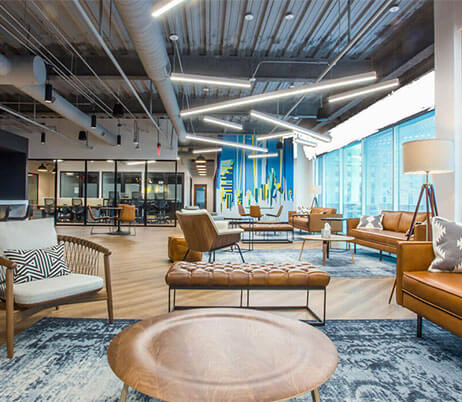In recent years, coworking spaces like Venture X have not only revolutionized the way we work but have also contributed significantly to environmental sustainability. The rise of these shared workspaces is more than just a trend; it's a reflection of a growing consciousness towards more eco-friendly business practices. In this blog, we'll explore the various environmental benefits that coworking spaces offer.
Reduced Resource Consumption
1. Shared Resources: One of the most immediate environmental benefits of coworking spaces is the shared use of resources. By centralizing facilities such as printers, lighting, heating, and air conditioning, coworking spaces ensure more efficient use of energy and resources compared to traditional office setups where each company operates independently.
2. Sustainable Infrastructure: Many coworking spaces are designed with sustainability in mind. From energy-efficient lighting and HVAC systems to the use of recycled materials in interior design, these spaces often embody eco-friendly practices.
Lower Carbon Footprint
1. Commuting and Transportation: Coworking spaces often reduce the need for long commutes, thanks to their strategic locations. This reduction in daily travel not only saves time but also significantly cuts down on carbon emissions. Additionally, many coworking spaces encourage eco-friendly transportation options like biking, public transport, or carpooling.
2. Green Building Certifications: Some coworking spaces are housed in buildings with green certifications like LEED (Leadership in Energy and Environmental Design). These buildings are designed to be energy-efficient and have a reduced carbon footprint.
Promoting a Culture of Sustainability
1. Community Influence: Coworking spaces often attract environmentally conscious individuals and businesses. This creates a community that values and promotes sustainable practices, influencing others to adopt similar habits.
2. Educational Events and Programs: Many coworking spaces host events and workshops focused on sustainability. These programs educate members on environmental issues and encourage eco-friendly practices both in the workplace and in their personal lives.
Waste Reduction
1. Shared Amenities: The communal nature of coworking spaces means amenities like kitchens and bathrooms are shared among many individuals and businesses. This setup encourages more efficient use of consumables and reduces waste.
2. Recycling and Composting Programs: Coworking spaces often have robust recycling and composting programs, making it easier for members to dispose of waste responsibly.
Energy Efficiency
1. Smart Technologies: Many coworking spaces utilize smart technology to manage energy use. Automated lighting, heating, and cooling systems ensure that energy is used efficiently, reducing waste and costs.
2. Renewable Energy Sources: Some coworking spaces go a step further by using renewable energy sources, such as solar panels, to power their facilities.
Conclusion
Coworking spaces like Venture X are at the forefront of a shift towards more environmentally responsible business practices. By promoting shared resources, reducing carbon footprints, fostering a culture of sustainability, minimizing waste, and maximizing energy efficiency, these spaces are not just changing the way we work; they're playing a crucial role in the fight against climate change. As we move towards a more sustainable future, coworking spaces set an example of how businesses can thrive while being environmentally conscious.
